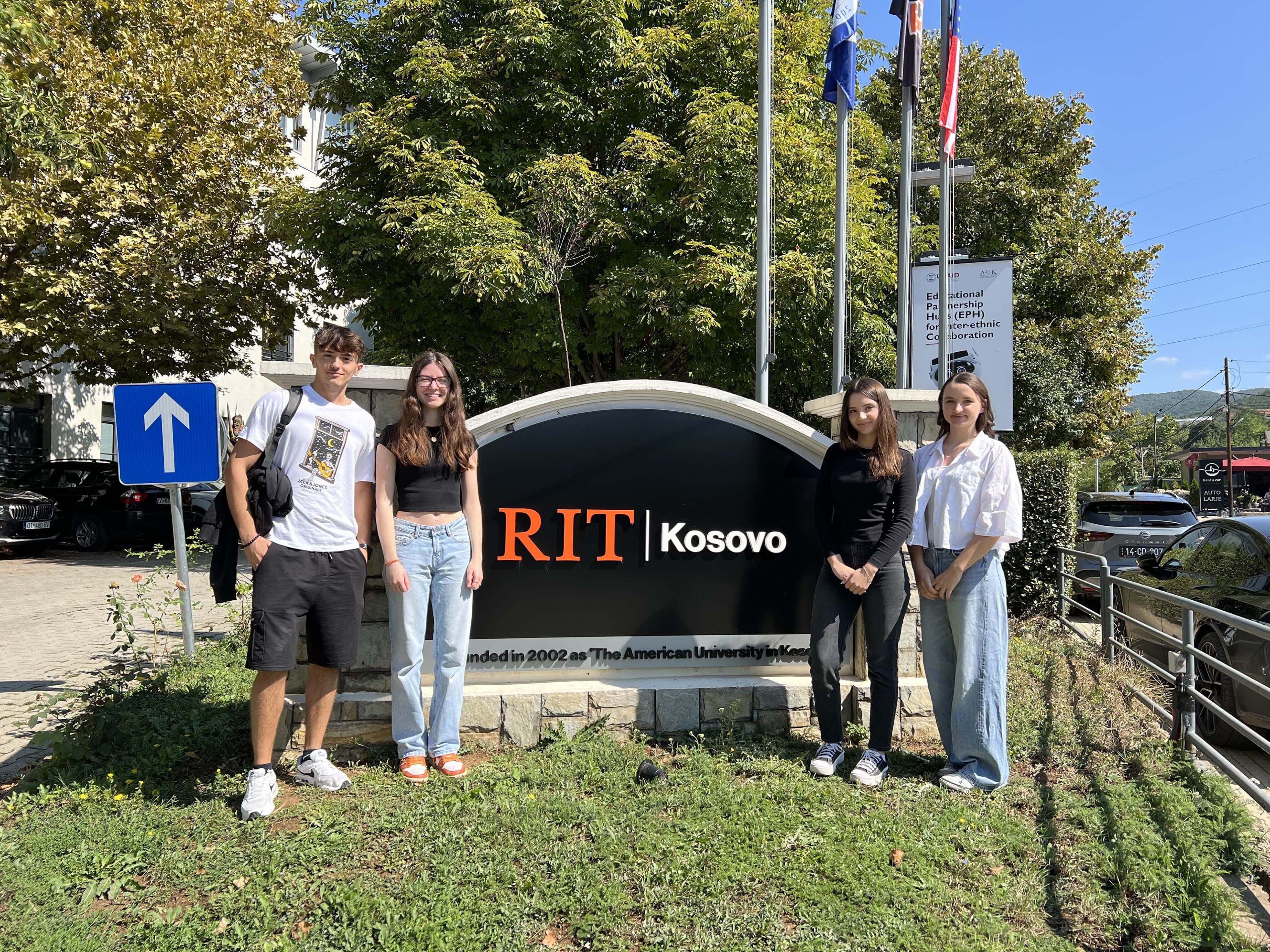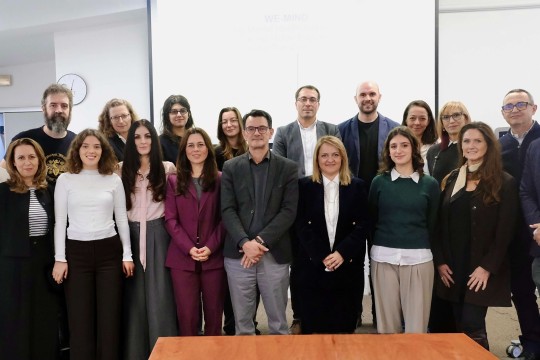Spotlight on RIT Kosovo CIT Students’ Scopus-Indexed Book Chapter: Automatic Technology Implications on Farm Agriculture and World Socio-Economic Impact
Korab Jashari, Jona Gecaj, Jona Berbatovci, and Artesa Qela, dedicated sophomore students from RIT Kosovo’s Computing and Information Technologies (CIT) program, have achieved a significant academic milestone by contributing to the prestigious book “Big Data Analytics and Intelligent Applications for Smart and Secure Healthcare Services”, which is indexed in Scopus. Their research, conducted under the mentorship of Dr. Debabrata Samanta, focuses on the transformative potential of artificial intelligence (AI) and automation technologies in reshaping agriculture, healthcare, and their broader socio-economic impacts worldwide.
Their chapter, titled "Automatic Technology Implications on Farm Agriculture and World Socio-Economic Impact", investigates the ways AI and automation can revolutionize agriculture. The research highlights how these technologies can lower food production costs, reduce labor-intensive tasks, and enhance food availability, which could significantly benefit the global population. The chapter further explores how AI can improve crop health, precision farming, disease detection, and farmer education, contributing to a more efficient and sustainable agricultural sector with far-reaching socio-economic implications.
Korab, Jona Gecaj, Jona Berbatovci, and Artesa worked tirelessly over the summer with the dedicated support of Dr. Samanta to bring this research to life. Reflecting on their experience, the group shared, "Collaborating on this project was an incredible opportunity to deepen our understanding of AI’s role in agriculture and its global impact. We are extremely grateful to Dr. Samanta for his guidance and to RIT Kosovo’s library for providing the critical resources needed for our work." This achievement is a testament to the students’ dedication to advancing agricultural practices through technology. Their work highlights the growing significance of AI in not only improving agricultural efficiency but also its broader applications in healthcare and economic systems. In expressing their appreciation, Korab, Jona Gecaj, Jona Berbatovci, and Artesa acknowledged Dr. Samanta’s unwavering mentorship throughout their research journey. Their accomplishment stands as a source of inspiration for their peers and underscores the high-quality research being produced at RIT Kosovo.














